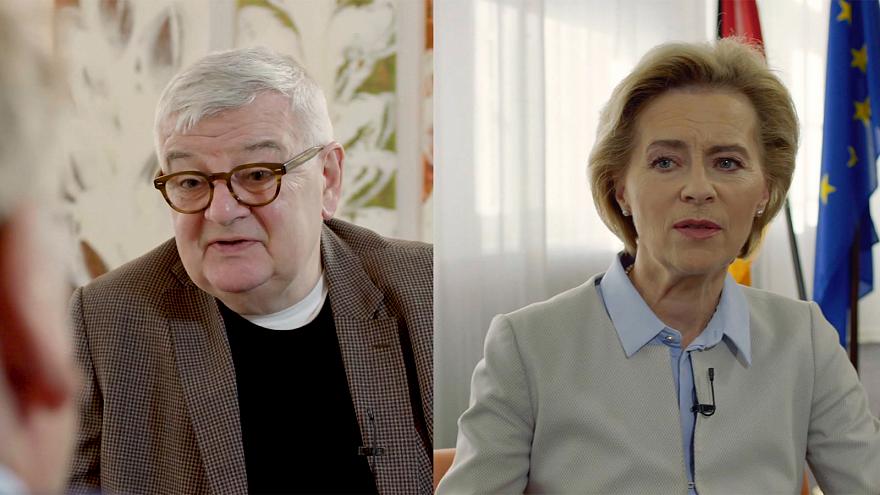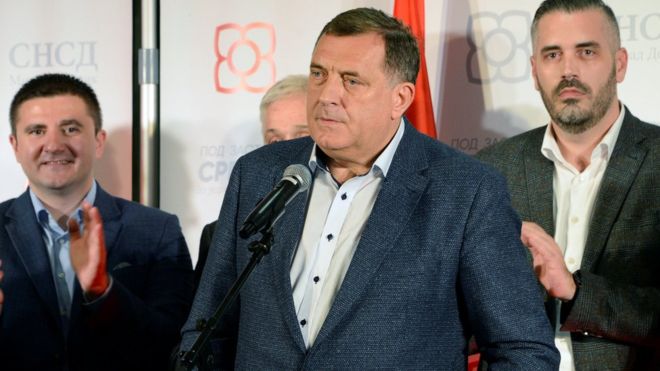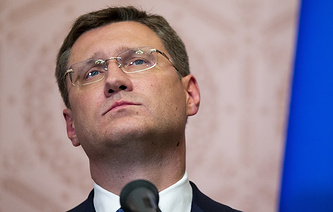
EuroNews (5 October 2018)
In the latest episode of ‘Uncut with Daniel Cohn-Bendit’, the former May ’68 student leader and Franco-German politician looks at why Germany is reluctant to take responsibility in Europe and the world. Cohn-Bendit is joined by former German Foreign Minister Joschka Fischer and current defence minister Ursula von der Leyen.
As Europe’s economic powerhouse, Germany is an obvious candidate to take a larger role on the international stage now that America appears to be backing away from the post-war multilateral order. But the country’s dark history still casts a long shadow. After the horrors of World War II, Joschka Fischer explains, “Germany instinctively drew the conclusion: Never again! Not only never again war, not only never again genocide, but also never again world power! Never again world politics”.
After the war Germany agreed to share the work of global leadership with the winning power, America, Fischer says: “For the hard, for the dirty - sometimes very dirty - things, for security issues, the USA is responsible and it is under this umbrella that we are able to develop our civil strengths. This division of labour is now gone!”
So as the new world order shifts toward East Asia and the Pacific, Germany must work more closely with France to maintain the relevance of Europe and the West, Fischer says: “We are in real danger of being lost. We still have exactly one chance, not one more…Our relationship with America, the future of the West will depend on whether the Europeans manage to unite. And that will depend to a large extent on Germany and France.”
Current Defence Minister Ursula von der Leyen agrees that Germany can no longer sit on the sidelines of global politics. She says that as well as being politically and economically influential, Germany must also be prepared to “take responsibility in those areas where there is no applause, where there are crises and conflicts”. This means focusing on various skills, including “diplomacy, development cooperation [and] also in the military”.
And while Germany’s history has meant the country stayed out of global conflicts, von der Leyen argues that its history can sometimes require that it get involved:
“One example: three years ago when ISIS took Mosul and attempted a genocide against Yazidis. Then Germany said exactly because of its history, for the first time since World War II, we're ready to send weapons to a war zone and to train and equip the Peshmerga over there, so that they are able to defend the Yazidis and their homeland”.
German armed forces are also working with international missions in Afghanistan and Mali and have helped launch the European Defence Union.
And that, von der Leyen says, is where the future of German – and European – defense and security lies: “We, as Europeans, must work together to tackle the problems at our door, no one will help us there anymore. We have made tremendous progress and because we are so consensual and proceeded so fast, it has also not stirred up any big dust, but it has been well carried forward. So we should go on like this”.
Joschka Fischer (born 1948 in Gerabronn, Germany)
• 1985: Green minister in the regional gov’t of Hesse, attains first federal party list position
• 1998: Vice chancellor and foreign minister in the first Green federal government coalition.
• 1999: Sends troops to Kosovo War - first German military intervention since World War II, also becomes president of the Council of the European Union.
• 2002: Green party gains in general elections, second term of Schröder/Fischer cabinet.
• Since 2005: career as strategic counselor and lobbyist (Siemens, BMW).
Ursula von der Leyen (born 1958 in Ixelles/Esene, Belgium)
• 2003: CDU (Christian Democrats) minister in the regional gov’t of Lower Saxony.
• 2005: Federal minister of family affairs/senior citizens/women/youth in Merkel’s 1st cabinet.
• 2009: Federal minister of labour and social affairs in Merkel’s 2nd cabinet.
• Since 2013: Federal minister of defence in Merkel’s 3rd cabinet.
• 2015: After plagiarism accusations, the Hannover medical school reconfirmed her degree, despite saying that “20% of her thesis are flawed”.
No comments yet.
- NATO SECRETARY GENERAL STARTS VISIT TO SERBIA The Balkans 08.10.2018
-
 SERB NATIONALIST MILORAD DODIK WINS BOSNIA PRESIDENCY SEAT
The Balkans
08.10.2018
SERB NATIONALIST MILORAD DODIK WINS BOSNIA PRESIDENCY SEAT
The Balkans
08.10.2018
- GERMAN FAR-RIGHT ROCK CONCERT ENDS IN VIOLENCE Europe - EU 08.10.2018
-
 RUSSIAN, IRANIAN TOP DIPLOMATS DISCUSS GLOBAL ISSUES, ENERGY COOPERATION
Asia - Pacific
08.10.2018
RUSSIAN, IRANIAN TOP DIPLOMATS DISCUSS GLOBAL ISSUES, ENERGY COOPERATION
Asia - Pacific
08.10.2018
- POLICE DENY POLITICAL INVOLVEMENT IN OIL SMUGGLING IN SOUTHERN IRAQ Iraq 08.10.2018
-
25.01.2016
THE ARMENIAN QUESTION - BASIC KNOWLEDGE AND DOCUMENTATION -
12.06.2024
THE TRUTH WILL OUT -
27.03.2023
RADİKAL ERMENİ UNSURLARCA GERÇEKLEŞTİRİLEN MEZALİMLER VE VANDALİZM -
17.03.2023
PATRIOTISM PERVERTED -
23.02.2023
MEN ARE LIKE THAT -
03.02.2023
BAKÜ-TİFLİS-CEYHAN BORU HATTININ YAŞANAN TARİHİ -
16.12.2022
INTERNATIONAL SCHOLARS ON THE EVENTS OF 1915 -
07.12.2022
FAKE PHOTOS AND THE ARMENIAN PROPAGANDA -
07.12.2022
ERMENİ PROPAGANDASI VE SAHTE RESİMLER -
01.01.2022
A Letter From Japan - Strategically Mum: The Silence of the Armenians -
01.01.2022
Japonya'dan Bir Mektup - Stratejik Suskunluk: Ermenilerin Sessizliği -
03.06.2020
Anastas Mikoyan: Confessions of an Armenian Bolshevik -
08.04.2020
Sovyet Sonrası Ukrayna’da Devlet, Toplum ve Siyaset - Değişen Dinamikler, Dönüşen Kimlikler -
12.06.2018
Ermeni Sorunuyla İlgili İngiliz Belgeleri (1912-1923) - British Documents on Armenian Question (1912-1923) -
02.12.2016
Turkish-Russian Academics: A Historical Study on the Caucasus -
01.07.2016
Gürcistan'daki Müslüman Topluluklar: Azınlık Hakları, Kimlik, Siyaset -
10.03.2016
Armenian Diaspora: Diaspora, State and the Imagination of the Republic of Armenia -
24.01.2016
ERMENİ SORUNU - TEMEL BİLGİ VE BELGELER (2. BASKI)
-
AVİM Conference Hall 24.01.2023
CONFERENCE TITLED “HUNGARY’S PERSPECTIVES ON THE TURKIC WORLD"









